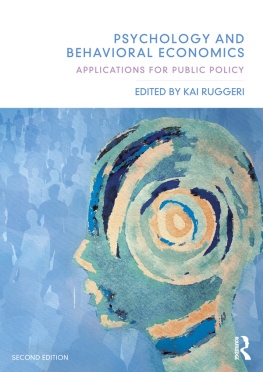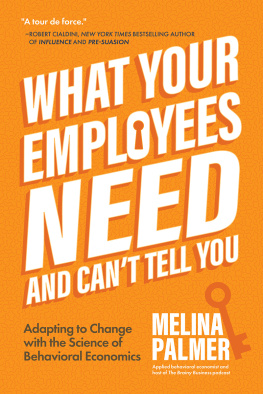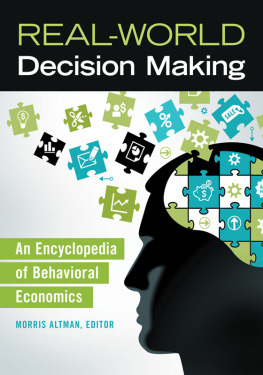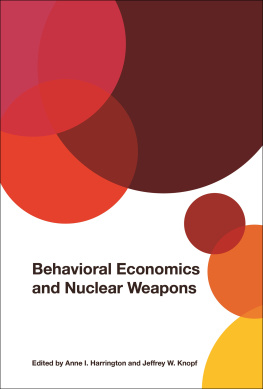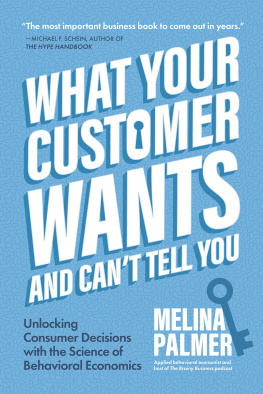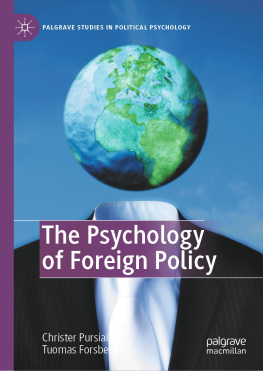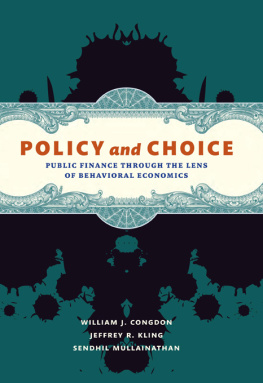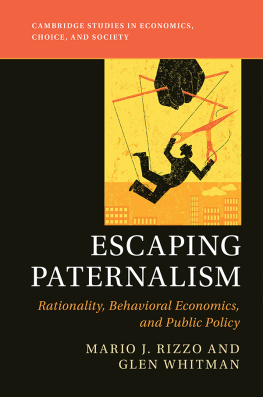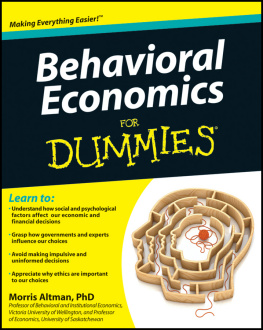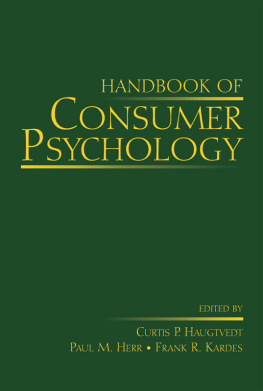Kai Ruggeri (editor) - Psychology and Behavioral Economics: Applications for Public Policy
Here you can read online Kai Ruggeri (editor) - Psychology and Behavioral Economics: Applications for Public Policy full text of the book (entire story) in english for free. Download pdf and epub, get meaning, cover and reviews about this ebook. year: 2021, publisher: Routledge, genre: Politics. Description of the work, (preface) as well as reviews are available. Best literature library LitArk.com created for fans of good reading and offers a wide selection of genres:
Romance novel
Science fiction
Adventure
Detective
Science
History
Home and family
Prose
Art
Politics
Computer
Non-fiction
Religion
Business
Children
Humor
Choose a favorite category and find really read worthwhile books. Enjoy immersion in the world of imagination, feel the emotions of the characters or learn something new for yourself, make an fascinating discovery.
- Book:Psychology and Behavioral Economics: Applications for Public Policy
- Author:
- Publisher:Routledge
- Genre:
- Year:2021
- Rating:3 / 5
- Favourites:Add to favourites
- Your mark:
Psychology and Behavioral Economics: Applications for Public Policy: summary, description and annotation
We offer to read an annotation, description, summary or preface (depends on what the author of the book "Psychology and Behavioral Economics: Applications for Public Policy" wrote himself). If you haven't found the necessary information about the book — write in the comments, we will try to find it.
Psychology and Behavioral Economics offers an expert introduction to how psychology can be applied to a range of public policy areas. It examines the impact of psychological research for public policymaking in economic, financial, and consumer sectors; in education, healthcare, and the workplace; for energy and the environment; and in communications.
Your energy bills show you how much you use compared to the average household in your area. Your doctor sends you a text message reminder when your appointment is coming up. Your bank gives you three choices for how much to pay off on your credit card each month. Wherever you look, there has been a rapid increase in the importance we place on understanding real human behaviors in everyday decisions, and these behavioral insights are now regularly used to influence everything from how companies recruit employees through to large-scale public policy and government regulation. But what is the actual evidence behind these tactics, and how did psychology become such a major player in economics? Answering these questions and more, this team of authors, working across both academia and government, present this fully revised and updated reworking of Behavioral Insights for Public Policy.
This update covers everything from how policy was historically developed, to major research in human behavior and social psychology, to key moments that brought behavioral sciences to the forefront of public policy. Featuring over 100 empirical examples of how behavioral insights are being used to address some of the most critical challenges faced globally, the book covers key topics such as evidence-based policy, a brief history of behavioral and decision sciences, behavioral economics, and policy evaluation, all illustrated throughout with lively case studies.
Including end-of-chapter questions, a glossary, and key concept boxes to aid retention, as well as a new chapter revealing the work of the Canadian governments behavioral insights unit, this is the perfect textbook for students of psychology, economics, public health, education, and organizational sciences, as well as public policy professionals looking for fresh insight into the underlying theory and practical applications in a range of public policy areas.
Kai Ruggeri (editor): author's other books
Who wrote Psychology and Behavioral Economics: Applications for Public Policy? Find out the surname, the name of the author of the book and a list of all author's works by series.

